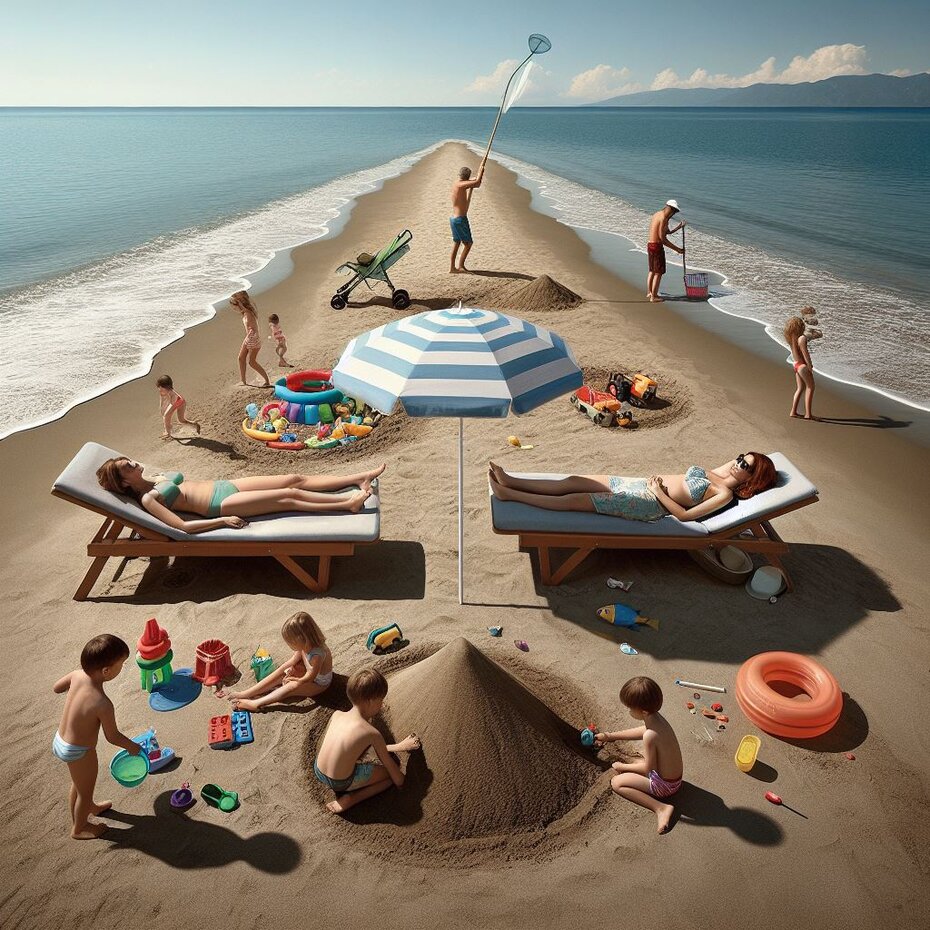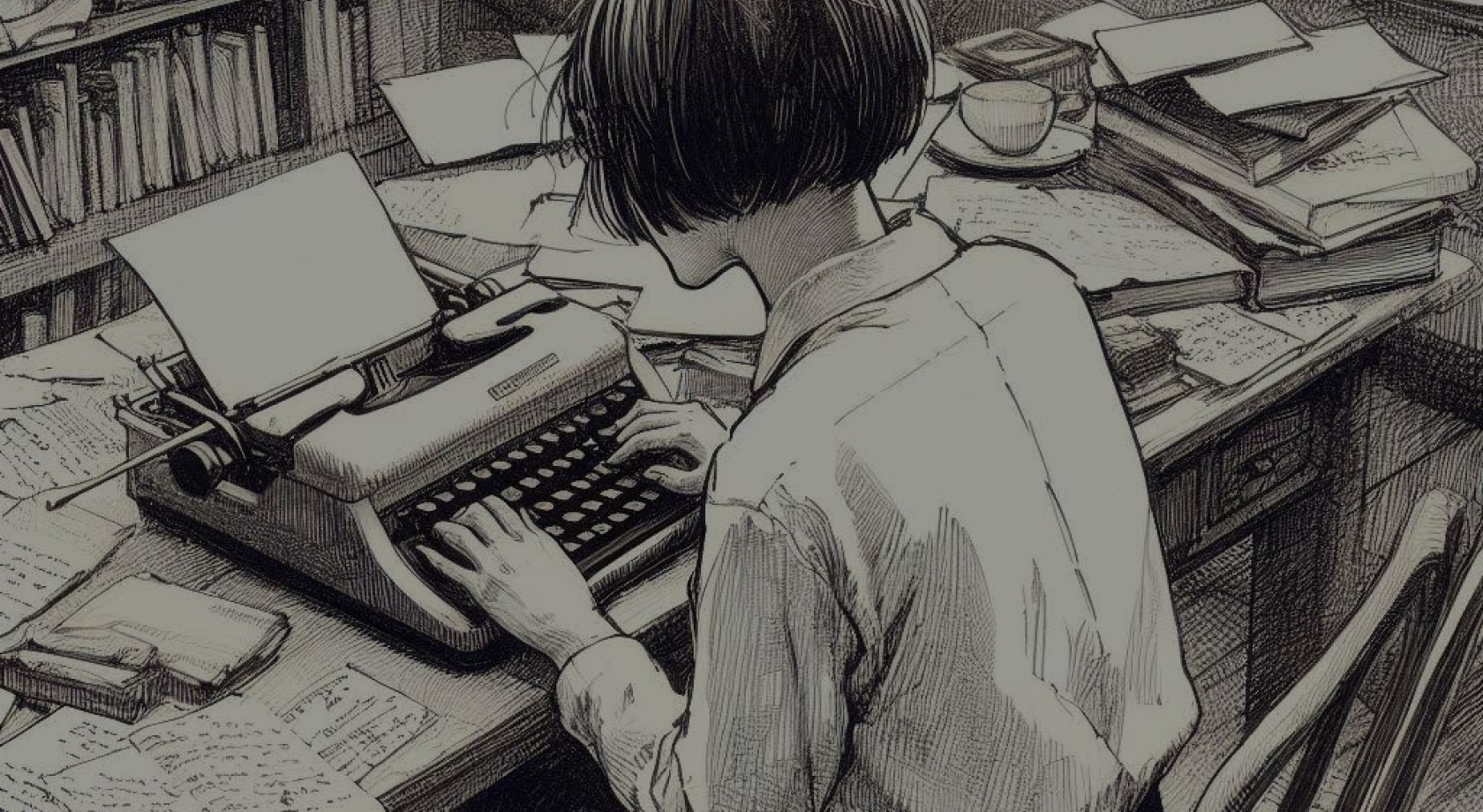Memories of a summer vacation from my childhood

"Look at Puuuxa-puuuxa!" shouts a caiçara boy in the distance, who is selling his mother's treats to summer tourists. It's three in the afternoon and we're all having a siesta after lunch. We have just got up from the lunch table, our bodies still hot and our skin burning from the sun. The plastic gear for playing in the sand, the wet bikinis and the handplanes sticking to the sea have all been abandoned in a corner on the way back from the beach, waiting for someone to come along and wash them. Now it's time for us to gather our strength for the afternoon's adventures.
While my cousins sleep, I return to reading the latest issue of Readers Digest magazine, which I abandoned halfway through at the end of last summer. The owner of the apartment we rent on the beach every year has had a collection of this magazine since it was launched in Brazil. I look dreamily at the bookshelf and start sorting the issues in numerical order, fascinated by this true summer archaeological find, full of short stories, articles on the latest scientific discoveries and almanac culture. All illustrated with colorful drawings that delight the eye.
When the boy who sells the molasses candy bars finally arrives at our building and repeats his usual refrain, children start appearing from all sides: the end of siesta is declared. We then retrieved our Caloi bikes, which had been abandoned in the courtyard of the building, and set off, our faces smeared with molasses and our knees scabbed, to explore the charms of the beach. Although I've barely turned twelve and I'm the oldest of the three of us, there's no reason to worry about us. My cousins and I are taking advantage of our new-found freedom to explore this peaceful coastline.
It's mid-December and most of the houses have not yet opened for the summer season. The caretakers are doing the final repairs before the owners start arriving just after New Year's Eve. Until then, the beach will be ours, the fishermen's and one or two early holidaymakers who come to share this lost corner of paradise with us. Let's hope that December 15 arrives soon and the cinema opens its doors. There's nothing better than watching suspense movies in that old movie theater, all made of wooden boards that creak under your footsteps. It's unforgettable when the fear that immobilizes us in the horror scenes, when the audience bangs their feet on the floorboards in unison, turns into hysterical screams and laughter.
One day we go to explore the sambaqui on the sandy hill, situated at the point where the main road ends at the beach. Who knows, maybe we'll find another arrowhead for our collection? We settle down at the top of the hill, sit with our legs open on the undergrowth and, with our paddle in hand, start looking for relics. We are closely watched by small, almost colorless crabs, which burrow into the sand at the slightest sign of agitation. From time to time, our attention is caught by the passing of the street photographer, the fishermen or the maids, to whom the beach belongs after lunch. Once in a while, a more enthusiastic couple gives in to hugging and kissing right there, under our curious gaze.
Later, with two or three chipped stones stuffed in our pockets, we make our way home. It's time to go and give my aunt a sign of life. Soon afterwards, we get on our bikes again and go for a ride to Capão da Canoa, to see the houses that are still half buried by the sand dunes, driven by the strong winds of the Rio Grande do Sul winter. Before we even entered our house, we found my aunt sitting on a stool in the hallway of the building, with a plastic bucket between her legs, washing the armadillos we had picked up on the beach earlier.
That same Friday, on our way back from our tour of Capão, we meet my uncle who has just arrived from Porto Alegre to spend the weekend with us. He's standing against the kitchen counter, chopping onions, tomatoes, parsley and chive. While he chops the ingredients to prepare a broth for dinner, we gather around him to find out what's new for the week. He then points to two huge boxes filled to the top with tomatoes, saying that the plantation that now occupies almost the entire back garden now reaches waist height. Even after distributing tomatoes to the neighbors, there are still many ripe tomatoes left on the tomato plants. "You have to turn everything into sauce before it starts to spoil," he says to his wife. The three of us notice my aunt watching the tomatoes bored, before bending down to pick up the bucket, where the armadillos are waiting to be thrown alive into the scalding broth.
Saturday dawns sunny and, just like every other day, we all go to the beach after breakfast. Each of us carries an infinite number of gadgets to the seaside. After setting up the parasol on the sand, smearing our faces with water paste and our bodies with a mixture of Johnson's oil and annatto seed, my uncle asks who wants to take the chance of swimming with him to the surf. This time I'm the one clinging to his neck, while he wades out into the sea, holding the net in one arm while he strokes with the other. After he stretches out the net parallel to the beach, we wait for a while tapping our feet in the deep sea, while we feel the waves that pass by us calmly, before breaking in the shallows. That day we return home with a bucket full of mullet and puffins.
While the three of us fight in front of the bathroom door to decide who will be the first to shower, and my uncle washes the fishing nets and lays them out in the sun to dry, my aunt goes down to the courtyard to wash our toys, bikinis and the clothes worn the day before, and then goes back upstairs to prepare lunch. That day, after a short nap, we take the car and go for a walk around the little shops in Capão da Canoa, buying straw and carved wooden items. Later, back in our apartment, while my uncle climbs onto the roof and turns the TV antenna from side to side, we shout every time the drizzle on the portable TV gives way to a low-quality B&W image. All this effort to tune in is justified: it's GRENAL day. Through the open door of the living room, we see my aunt sitting on her stool in the hallway of the building, watching us curiously as she squeezes the bellies of the fish one by one to clean their guts. At the end of dinner, while we were washing and drying the dishes, my cousins and I were chatting: unfortunately Grêmio won the game, and we still have to pack our bags to go back to P. Alegre before going to bed, but the fried fish was delicious! My aunt, looking absorbed and with a smile on her lips, comments absent-mindedly: "Tomorrow my vacation starts. At this, my cousins, uncle and I turned to her in surprise and then burst into laughter. "Mom, you've got yourself mixed up! Tomorrow our vacation ends," my cousin said with a laugh. "That's right," replied my aunt, with an enigmatic smile.
Lexicon:
Sambaquis: are a specific type of archaeological site found on the Brazilian coast that contain a large number of human burials and were constructed by indians by progressively and intentionally accumulating shells and fish bones.
Caiçara: a descendant of a variety of different indigenous people that inhabits the coastal area
Puxa-puxa: molasses candy canes
Tatuíra: emerita brasiliensis crustacean
GRENAL: football game between the Internacional and Gremio teams
Voltar
